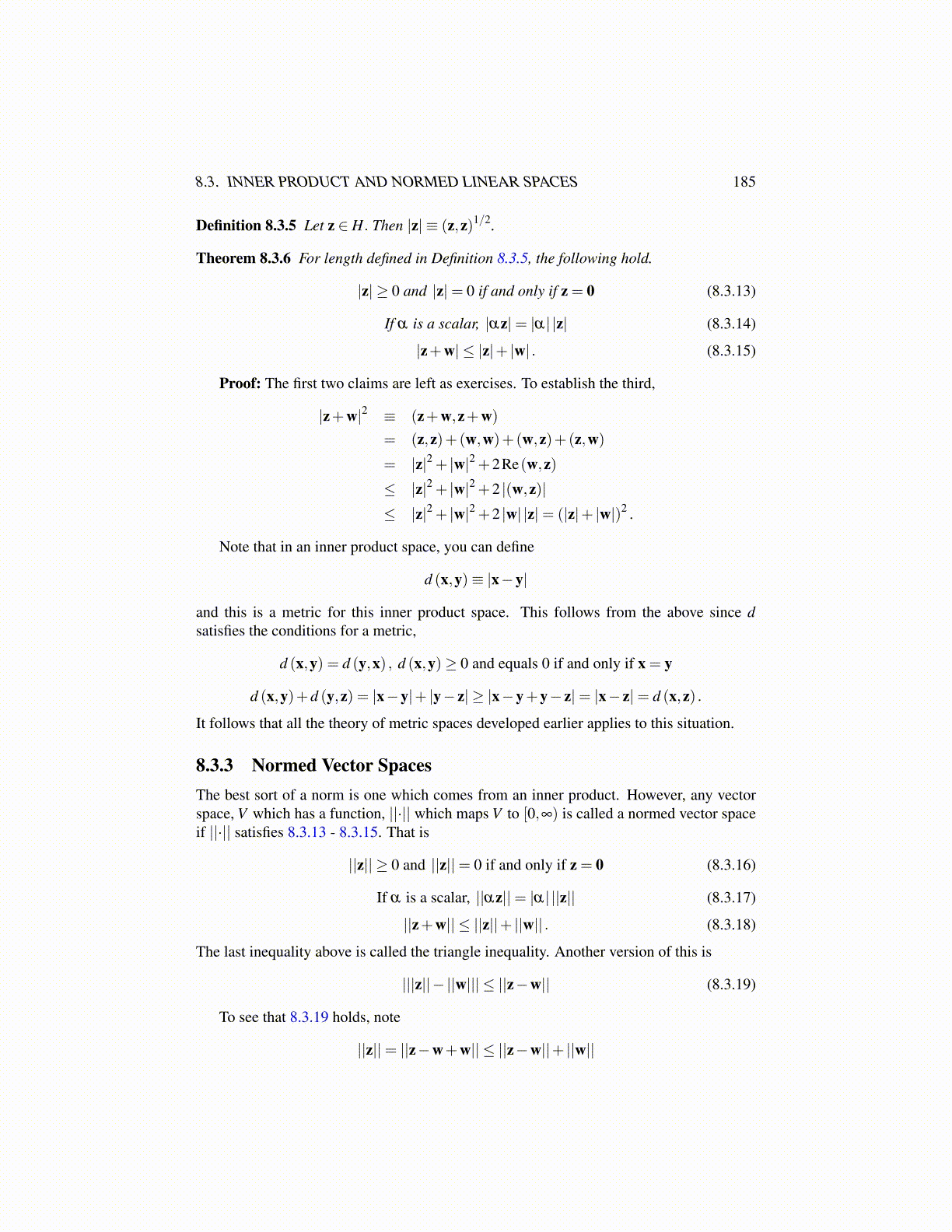
8.3. INNER PRODUCT AND NORMED LINEAR SPACES 185
Definition 8.3.5 Let z ∈ H. Then |z| ≡ (z,z)1/2.
Theorem 8.3.6 For length defined in Definition 8.3.5, the following hold.
|z| ≥ 0 and |z|= 0 if and only if z = 0 (8.3.13)
If α is a scalar, |αz|= |α| |z| (8.3.14)
|z+w| ≤ |z|+ |w| . (8.3.15)
Proof: The first two claims are left as exercises. To establish the third,
|z+w|2 ≡ (z+w,z+w)
= (z,z)+(w,w)+(w,z)+(z,w)
= |z|2 + |w|2 +2Re(w,z)≤ |z|2 + |w|2 +2 |(w,z)|≤ |z|2 + |w|2 +2 |w| |z|= (|z|+ |w|)2 .
Note that in an inner product space, you can define
d (x,y)≡ |x−y|
and this is a metric for this inner product space. This follows from the above since dsatisfies the conditions for a metric,
d (x,y) = d (y,x) , d (x,y)≥ 0 and equals 0 if and only if x = y
d (x,y)+d (y,z) = |x−y|+ |y− z| ≥ |x−y+y− z|= |x− z|= d (x,z) .
It follows that all the theory of metric spaces developed earlier applies to this situation.
8.3.3 Normed Vector SpacesThe best sort of a norm is one which comes from an inner product. However, any vectorspace, V which has a function, ||·|| which maps V to [0,∞) is called a normed vector spaceif ||·|| satisfies 8.3.13 - 8.3.15. That is
||z|| ≥ 0 and ||z||= 0 if and only if z = 0 (8.3.16)
If α is a scalar, ||αz||= |α| ||z|| (8.3.17)
||z+w|| ≤ ||z||+ ||w|| . (8.3.18)
The last inequality above is called the triangle inequality. Another version of this is
|||z||− ||w||| ≤ ||z−w|| (8.3.19)
To see that 8.3.19 holds, note
||z||= ||z−w+w|| ≤ ||z−w||+ ||w||